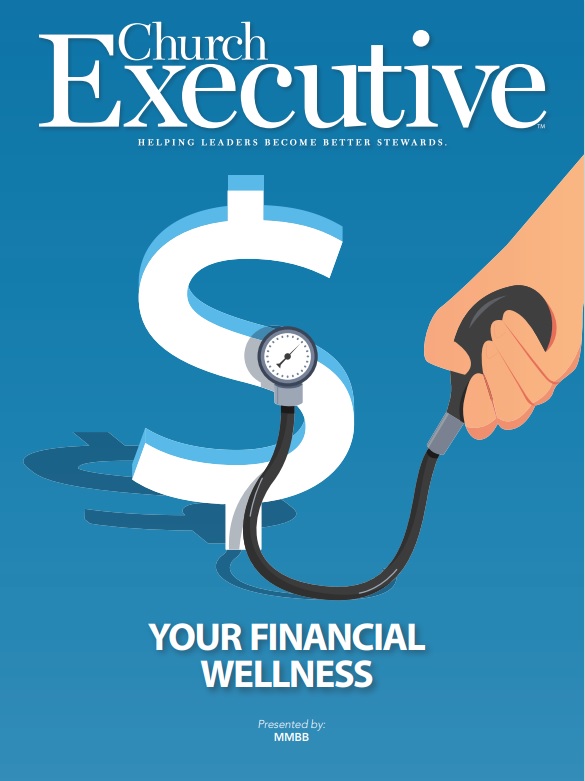
By Rev. Dr. Perry J. Hopper, MBA
 After two years of doing ministry and worshipping with the uncertainty of the pandemic, most churches have returned to in-person worship.
After two years of doing ministry and worshipping with the uncertainty of the pandemic, most churches have returned to in-person worship.
Church attendance at mainline churches had been experiencing a steady decline before the pandemic, and that has been exacerbated because churches were forced to worship online for far longer than expected.
We are learning to live with and protect ourselves from the COVID-19 virus, and discerning insights gained during the pandemic. Churches will benefit by taking a realistic assessment of their financial health as they plan for future ministry and financial needs.
Consider the following factors in your financial evaluation:
• Include an analysis of your pre-pandemic giving income and expenses in 2019 or earlier.
• Determine how the church fared financially during the disruptive pandemic years of 2020 and 2021. Did congregational giving decrease, increase, or did it hold steady?
• If your church received a loan under the Paycheck Protection Program initiated in response to COVID-19, how did that impact your budget in in 2020 and 2021?
• Is your church making payments on payroll taxes that were deferred through December 31, 2022 under the 2020 CARES Act? How will that affect the balance sheet?
• If your church adopted an online giving platform(s) in the last two years, what has been the impact on congregational giving?
• Has 2022 functioned as a stabilizing year financially?
• Are there any financial trends or expenses that emerged over the last two years that have become permanent?
• Note any shifts that have occurred amongst your church staff.

Ideally you want to develop a three-year comparison and analysis to help your church finance committee determine how giving patterns and income and expense cycles might have shifted. This might be time-consuming for the financial team at your church, but the information gathered will be invaluable as you begin working on the budget for the coming year.
Discontinue ministries that are no longer effective. Pastoral leaders will want to prayerfully determine with other church leaders which ministries need to be halted before you plan your budget; determine which ministries might need increased funding such as a growing media ministry or whether there are new ministries that require funding. While everyone might have a particular ministry they believe should be retained, it is critical to take a no-nonsense look to ascertain the ministries and programs that are most effective.
Consider changing your budget cycle. Most churches use the annual budget approach. However, many churches are still discerning potential changes in worship and understanding the choices congregations are making after almost two years of online worship. Should the church use a hybrid model for worship? How do you define hybrid for your church context? Changing to a 6-month budget cycle might allow the church to be more responsive as adjustments are needed.
Be sure to consider cash flow when formulating your budget. Many churches make the mistake of focusing solely on overall giving without considering cash flow, so they have enough cash on hand for ongoing expenses and unforeseen emergencies. Your church will want to build up a reserve for periods when giving and income is down and large annual expenses need to be paid.
The church budget should be aligned with your strategic ministry priorities. You want to be sure that all spending links back to the ministry and program goals and plans that have emerged from the church vision and mission.
Think carefully about your stewardship plan. Pastors need to decide how they will preach and teach about stewardship and giving. If there is a stewardship committee, work together to develop a plan that helps the congregation understand how we are called to be stewards of God’s provision.
In the book Embracing Stewardship by Charles R. Lane & Grace Duddy Pomroy1, Pomroy remarks that “Stewardship is the multiplicity of ways that the people of God live out God’s mission in the world using all of the abundance that God has entrusted to them.” She appears to view stewardship as having a generous mindset that goes beyond giving money, but manifests in our understanding of who we are called to be out of gratitude for God’s grace in our lives.
Make financial education a central priority for the congregation. For most people, talking about money and finance is uncomfortable. But it does not make much sense to speak about stewardship and giving if you do not provide resources for people to become more knowledgeable about how to build their personal financial wellness.
Consider hosting a workshop or webinar for a financial planner to speak about ways to manage debt or create an emergency fund. When people experience positive change in their personal finances, they tend to be more responsive to the financial needs of the church.
Finally, the pastor needs to be comfortable talking about money. If the pastor has difficulty discussing money and his or her own experiences or money struggles, it will be reflected in the congregation. Members can benefit from hearing about pastors honestly speak about their own money stories or journeys and the wisdom they have gleaned as they have worked toward creating financial wellness and wellbeing in their own lives.
Rev. Dr. Perry J. Hopper, MBA serves as the associate executive director and director of denominational relations of MMBB. He joined MMBB’s staff in 1987 and is responsible for coordinating special programs that support MMBB’s mission. He works in various capacities to best serve existing members, to reach prospective members, and to maintain solid relationships between MMBB and its affiliates.
Rev. Dr. Hopper’s education includes a B.A. in political science (with a minor in business administration) from the University of Washington and an MBA from Penn State University. He also holds a Master of Divinity degree from the Harvard University Divinity School and a Doctor of Ministry degree as a Samuel DeWitt Proctor Fellow at the United Theological Seminary of Dayton, Ohio.
1Lane, C.D., & Pomroy, G.D. (2016). Embracing stewardship How to put stewardship at the heart of your congregation’s life. (p.19) Embracing Stewardship LLC



Very helpful article for me. I was searching for this topic because I am a blogger in the beginner stage. Now I will use these methods for my blog. I hope it will work for me.